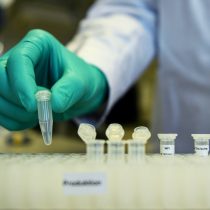
In recent days, we have begun to learn about the proposals of the various presidential candidates, contained in their respective programmes. Historically, the proposals on science have occupied a rather limited place within the programs, and usually with a strong economic bias, that is, conceiving the science only or mainly as a productive factor more to be considered within the proposals of an economic nature (a problem to which we already refer in this same medium , in the context of the previous presidential elections).
Expectations for this election were different. For the first time, the programmatic teams were faced with the need to develop proposals for science considering the existence of a ministry for the area, an updated institutional framework, and a law that provides guidelines for the elaboration of a national policy in the area.
There is also no doubt that science has a different visibility today, and has acquired greater public relevance. Finally, the COVID-19 pandemic has revealed the consequences of not staying on the frontier of knowledge in various areas, which has resulted in an inconvenient biomedical and technological dependence on developed countries.
Unfortunately, none of this seemed to be enough. The various programme proposals once again fall into the problem of economicism, in some cases in an excessive way, in others with nuances.
What are the problems associated with the economicism of science? In this space, we can list at least three. The first is that it reveals poor (or insufficient, at best) conceptual basis for how science impacts economic development. In Chile, a line of thought has been strongly established according to which basic research, and especially that motivated by the curiosity of researchers, does not contribute to economic development, and consequently should be committed to specific areas, ideally through designated “challenges”, “missions” or “challenges”.
That is, if you want Chile to make lithium batteries, then you have to investigate lithium and not graphene, for example. Of course, this is a simplification that reduces the argument in the extreme, but it is not so far removed from reality. It is enough to remember that none other than the National Innovation Council said, in one of its “strategic orientations”, that Chile “cannot pretend to be excellent in everything”.
This line of thought is not adequately supported by the evidence. Many historical accounts of the impact of science on innovation, used to justify this theory, begin at convenient milestones to sustain a determined ex ante stance.
It is wrongly assumed that a society has all the knowledge necessary to promote a certain innovation, and that therefore it is not necessary to bet on fundamental research; at best, such knowledge is imported and “consumed” or “applied”. While this idea may have been true in previous centuries, it is not applicable today, when problems are of great complexity and are fed by knowledge in various areas and disciplines, which is otherwise no longer as easily transferable as in the past.
It should come as no surprise, then, that the last two decades have been characterized by such models of innovation, which place little or no value on basic science, and at the same time have snuded debates about the stagnation of innovation.
The second problem with economicism is that it does not properly value other contributions that scientific research can make. This is particularly true for the political value of science, that is to say, in its ability to inform our public debates in a number of areas.
It should be noted, for example, how the various presidential programs in general do not take advantage of the recently created scientific institutions to assign new functions in public policies. Of course, the most characteristic dimension of science, relating to its function of generating expanded knowledge about our world, as well as its contribution to culture, is not valued either. For presidential programs, development seems to be synonymous with a country that consumes knowledge, only to apply it and grow.
Finally, the third problem is that, by giving such too much emphasis to the issue of the role of science in the economy, presidential programs generally forget to offer proposals to solve the problems.The structural aspects of scientific research itself (although it must be admitted that the programmes of Daniel Jadue and Gabriel Boric provide a more elaborate reflection in this regard). Some programs offer measures (some of them questionable) on funding (such as spending targets or proposals for baseline funds), and also on gender equality, but they do not go much further. In some programmes, the mention of science is even decidedly terse.
Those who aspire to lead the country for years to come face a complex challenge. Chile will go through a period of great needs (such as managing the pandemic and subsequent recovery) and challenges (the constituent process). However, we need and deserve a project that brings everyone together to build a better country. This project cannot be limited to a new model of economic growth, no more adjectives (sustainable, inclusive, post-extractivist, equitable) that accompany this aspiration.
We must also be able to participate in the challenge of collective construction of new and better knowledge regarding ourselves, our world, our history, and our culture. With these proposals for science, however, this last noble aspiration not only seems distant, but frankly unlikely.





